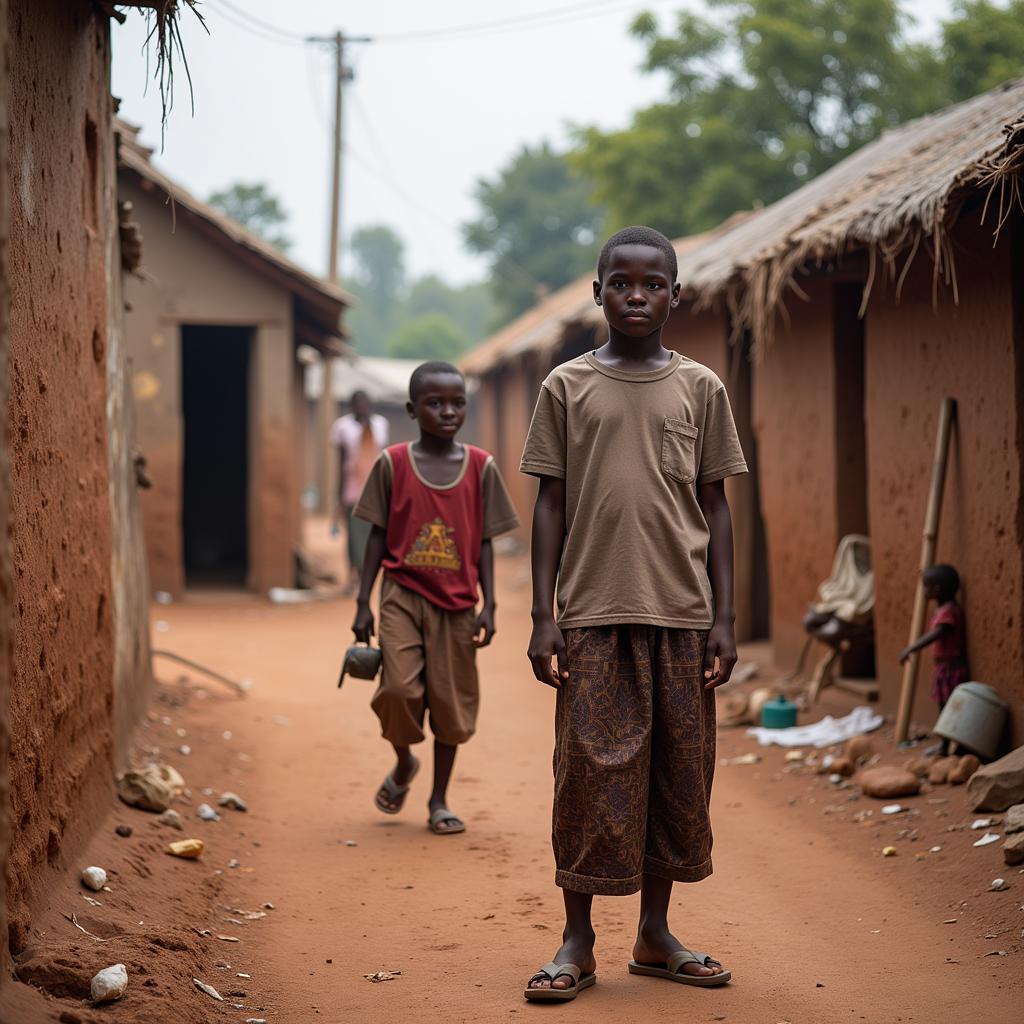Understanding Poverty in African Countries
Poverty in Africa is a complex issue with deep historical roots and multifaceted causes. While it’s true that the continent faces significant challenges, it’s crucial to approach this topic with nuance and avoid generalizations. This article delves into the intricacies of poverty in African countries, exploring its various dimensions and shedding light on the factors contributing to its persistence.
 Children in Rural Africa Facing Poverty
Children in Rural Africa Facing Poverty
Historical Context and Colonial Legacy
Understanding poverty in Africa necessitates acknowledging the profound impact of its colonial past. Centuries of exploitation, resource extraction, and systematic underdevelopment have left a lasting legacy on the continent’s socioeconomic landscape.
The transatlantic slave trade, for instance, decimated populations, disrupted social structures, and drained Africa of its human capital. Colonial powers often implemented policies that prioritized their interests, leading to the establishment of extractive industries and cash crop economies that benefited the colonizers at the expense of local communities.
This historical context has created systemic inequalities and hampered the continent’s ability to fully realize its economic potential.
Factors Perpetuating Poverty in Africa
While colonialism laid the groundwork for many of the challenges Africa faces today, contemporary factors continue to perpetuate poverty.
1. Conflict and Instability
Many African countries are plagued by armed conflict, political instability, and weak governance. These factors create an environment of uncertainty, hindering investment, disrupting economic activity, and displacing populations.
2. Lack of Economic Diversification
Many African economies remain heavily reliant on a few primary commodities, making them vulnerable to price fluctuations in the global market. This lack of economic diversification limits job creation, stifles innovation, and hinders sustainable growth.
3. Climate Change Impacts
Climate change poses a significant threat to African countries, which are disproportionately vulnerable to its effects. Extreme weather events such as droughts, floods, and heatwaves can devastate crops, displace communities, and exacerbate food insecurity, pushing more people into poverty.
4. Inadequate Healthcare and Education Systems
Limited access to quality healthcare and education perpetuates a cycle of poverty. Poor health outcomes can reduce productivity and increase healthcare expenses, while inadequate education limits opportunities for upward mobility.
Addressing Poverty: Pathways to Progress
Despite the challenges, there are glimmers of hope and inspiring examples of progress in the fight against poverty in Africa.
1. Investing in Human Capital
Prioritizing investments in education and healthcare is crucial for breaking the cycle of poverty. Providing quality education, particularly for girls, can empower individuals, increase earning potential, and drive economic growth.
2. Promoting Sustainable Agriculture
Supporting smallholder farmers, improving agricultural practices, and diversifying crops can enhance food security, generate income, and build resilience to climate change.
3. Fostering Good Governance and Peacebuilding
Creating stable and accountable institutions is essential for attracting investment, promoting economic growth, and reducing poverty. Addressing the root causes of conflict and promoting peacebuilding initiatives are critical for fostering sustainable development.
Conclusion
Poverty in African countries is a complex issue with historical and contemporary dimensions. Addressing it requires a multifaceted approach that acknowledges the continent’s unique challenges and leverages its immense potential. By investing in human capital, promoting sustainable development, and fostering good governance, we can work towards a future where all Africans have the opportunity to thrive.

